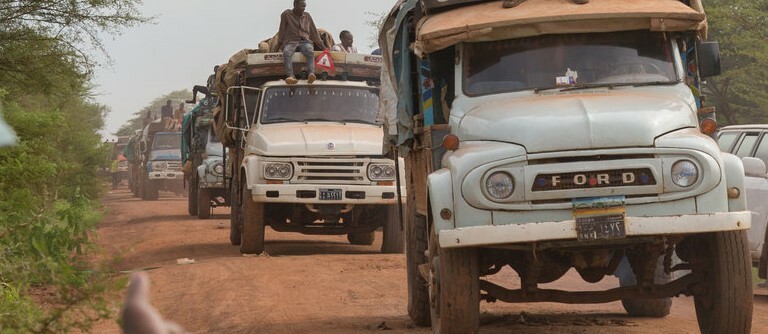The Amiet common market for the Ngok Dinka and Misseriya communities in the disputed area of Abyei has reopened after several days of closure following an attack.
Last week, over 40 people were reported killed, 26 others injured and more than 2,390 families displaced by attacks carried by armed men believed to be from the Sudanese Misseriya community.
Osman Chol Deng, the Chairperson of the Chamber of Commerce in the area, told Radio Tamazuj Thursday that the market has resumed four days after the incident.
But he said traders at the moment are not able to make supplies from the neighbouring Sudan where most of the area’s products come from due to the insecurity there.
“There are goods in the market but no goods came from Sudan because traders fear that their goods would be looted but these goods were in the market before and after the Amiet incident,” Deng said
Some traders confirmed the reopening but decried the lack of goods.
Abubakar Adam, a Sudanese businessman there, said cars have started moving between Amiet and Aneet in the Abyei area but no goods are available in the market.
“On Wednesday small cars from Abyei came and there were no goods but only onions which were many. There is no sugar, flour and cartons of biscuits,” he said.
Buk Chol Osman, a driver who went to Abyei on Wednesday, said: “The market is open, cars from Juba came to Amiet but there are no vehicles which came from Sudan.”
For his part, Nyok Deng Rou, Ameth-Aguok County Commissioner described the security situation as calm.
“The security situation is fine, no problem. Traders have come back and started their normal businesses, there are no commercial trucks coming from Sudan but we are expecting a flow of goods soon from Sudan,” he said.
The Amiet market was established to sustain peace between the Ngok Dinka and Misseriya tribes in the area.
Sudan and South Sudan are disputing the oil-rich Abyei.
In October 2013, the Ngok Dinka community conducted a unilateral popular referendum, in which the vast majority of people voted to join South Sudan. However, neither Sudan nor South Sudan recognized the plebiscite so far.




